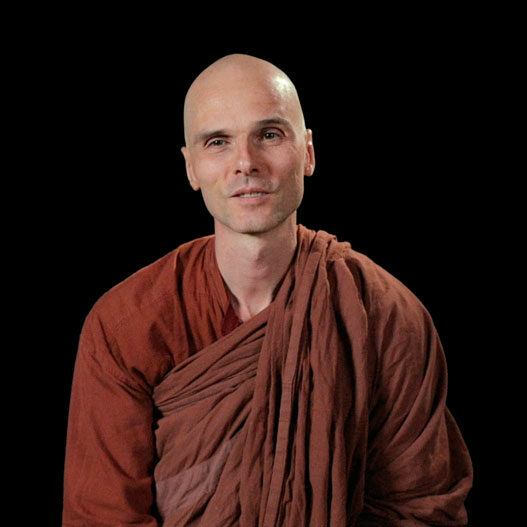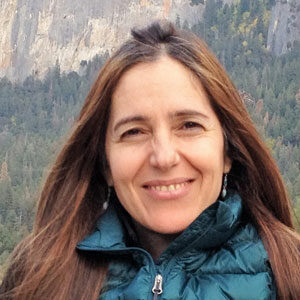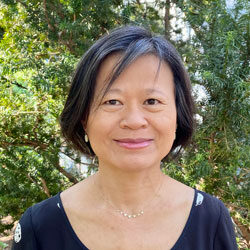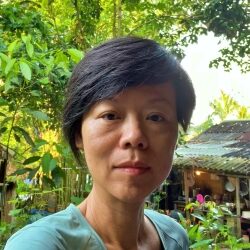Satipaṭṭhāna Meditation
A BCBS Online Intensive Program Guided by the Teachings of Bhikkhu Anālayo
January 18 - March 22, 2025
Satipaṭṭhāna Meditation offers nine weeks of study and practice of the liberating teachings of the Satipaṭṭhāna sutta, a foundational early Buddhist framework, with a cohort of practitioners guided by the teachings of renowned scholar and monastic, Bhikkhu Anālayo.
Applications Open October 21, 2024
Testimonials
The curriculum was incredibly well-designed, the teachings were well-paced and clear, and the sangha discussions were wonderful. You have taken online teaching to a new level!
Shook me to my core and reawakened the kind of passion for the Dharma I first had in my teens.
The online sangha was and is wonderful. I learned so much from my peers.
The Satipaṭṭhāna Experience
My Participant Experience
My Teaching Experience
LGBTQIA+ Sangha Experience
Program Description
Satipaṭṭhāna Meditation is an interactive and comprehensive online program modeled on previously offered in-person programs by Venerable Bhikkhu Anālayo on the foundational mindfulness text, the Satipaṭṭhāna-sutta. While based on scholarly research, the emphasis throughout this online program is on what is relevant to actual meditation practice. In order to promote accessibility and support individual learning styles, participants are offered a variety of tools to make this text personally relevant and to integrate it into daily living.
The core text for this program is Satipaṭṭhāna Meditation: A Practice Guide by Bhikkhu Anālayo. The participant experience is enriched by a variety of learning modalities and practice experiences, including interactive group study meetings facilitated by guiding teachers, recorded guided meditations and video lectures by Bhikkhu Anālayo, moderated forum-based discussions, and practical exercises. Each week, participants will investigate one aspect of the four foundations of mindfulness by contemplating a particular aspect of body, mind, feeling, or the dhammas.
Program Overview
| Application Timeframe | October 21 - November 25, 2024 | |
| Prerequisites | Establishment in a basic mindfulness practice | |
| Program Dates | January 18 - March 22, 2025 (Orientations: January 13-18) |
|
| Duration | 9 weeks | |
 | Time Commitment | 7-10 hours per week |
 | Participation Expectation | Intensive |
 | Self-Paced Components | • Video lectures • Audio guided meditations • Reading assignments • Sutta study • Contributing to discussion forums • Non-graded review questions |
 | Interactive Components | Weekly 90-minute live group meetings, including: • Breakout practice and sutta study discussions • Moderated weekly written discussion forums |
Program Information
Program Participation
This program requires considerable commitment from participants and is not a self-study program. We require attendance at weekly virtual meetings as well as completion of writing prompts and program assessments. The required time commitment is roughly 10-12* hours per week.
Weekly individual participation includes:
- 90 minutes of a small group video meeting**
- watching/listening to a 20-minute video lecture by Bhikkhu Anālayo
- daily personal Satipaṭṭhāna Meditation practice (Bhikkhu Anālayo’s recorded guided meditations will be provided)
- completing study activities
- contributing to the group discussion forum
- reading one chapter per week in the core text, Satipatthana Meditation: A Practice Guide by Bhikkhu Anālayo.
*Participants are strongly encouraged to read Satipatthana Meditation: A Practice Guide in advance of the program (later referring back to the book as a reference/refresher for each weekly topic). Otherwise, participants should anticipate an additional 2-3 hours per week for reading during the program.
**The small group meeting is the only program component that happens at a fixed time, and meetings will occur on the same day/time each week.
Click here for the Spring 2024 Small Group Meeting Schedule. The Winter 2025 Schedule will be updated soon. Applicants will select their available times on the application. Attendance is mandatory.
Program Curriculum
| Pre-launch week | Orientation |
| Week 1 | Mindfulness, Satipaṭṭhāna |
| Week 2 | First Satipaṭṭhāna (Body): Contemplation of Anatomical Parts |
| Week 3 | First Satipaṭṭhāna (Body): Contemplation of Elements |
| Week 4 | First Satipaṭṭhāna (Body): Contemplation of Death |
| Week 5 | Second Satipaṭṭhāna (Feeling): Contemplation of Feelings |
| Week 6 | Third Satipaṭṭhāna (Mind): Contemplation of Mind |
| Week 7 | Fourth Satipaṭṭhāna (Dhammas): Contemplation of the Hindrances |
| Week 8 | Fourth Satipaṭṭhāna (Dhammas): Contemplation of the Awakening Factors |
| Week 9 | Conclusion and Integration |
Ethical Commitment
In early Buddhist thought, tranquility and insight are complementary dimensions of meditative cultivation, traditionally based on a solid foundation in moral conduct and part of a gradual process of training. This online program will follow the Buddha's principle of ethics as the foundation for Satipaṭṭhāna practice. Participation in this program is supported by group commitment to respect and non-harming, applying to both communication with others and also to one's personal relationship with the practice.
Application Information
The program fee is $450.
In keeping with the tradition of teachers offering the Buddhadharma out of a spirit of generosity, program fees do not include compensation for teachers. There will be an opportunity to support your teacher(s) through the practice of dāna at the end of the program.
We are committed to making this program accessible to all. Financial assistance is available to help supplement the program fee. Requests for financial assistance can be made during the registration process. If accepted into the program, financial assistance of 30%, 40%, or 50% of the program fee can be selected and immediately applied during registration. If the need for financial assistance is greater than 50% of the program fee, please indicate what amount of the program fee feels affordable to you, and we will do what we can to accommodate your request.
We are committed to providing a spiritual home and resource for all on the path to awakening. We do our best to ensure that everyone who comes here feels truly welcome, respected, and safe, whatever their age, race, ethnicity, sex (including gender identity and expression), sexual orientation, body type, disability, religion, or political viewpoint. We recognize this is ongoing work and invite you to reach out to us at contact@buddhistinquiry.org with suggestions and feedback as to how we can more fully embody our aspiration to be a spiritual home and resource for all.
Applications Open: October 21
Applications Close: November 25 at 5:00 PM ET
Initial Acceptance Notification: November 29
Registration: December 2-23
Orientation Week: January 13-18
Program Dates: January 18 - March 22
This online program offers an optional certification track, which qualifies participants for Bhikkhu Anālayo's online Mindfulness of Breathing and Brahmavihāras & Emptiness programs. The optional certification track requires the completion of a final reflection and review of participation.
Faculty
Guiding Teacher

Bhikkhu Anālayo is a scholar-monk and the author of numerous books on meditation and early Buddhism, such as Satipatthāna: The Direct Path to Realization, Perspectives on Satipatthāna, and Satipatthāna Meditation: A Practice Guide. He is a Faculty Member at the Barre Center for Buddhist Studies, having retired from being a professor at the Numata Center for Buddhist Studies at the University of Hamburg. His main area of academic research is early Buddhism, with a special interest in the topics of meditation and women in Buddhism. At the Barre Center for Buddhist Studies, he regularly participates in online programs and undertakes research into meditation-related themes.
Bhikkhu Anālayo offers his teaching for this program through the video lectures, guided meditations, and readings. There will be no live contact with Bhikkhu Anālayo.










